From Berlin to Andaman Islands
Standing at the edge of the beach, Katleen Schenider picks up the last piece of plastic bottle that her eyes can spot. It has been a long day at the Beach Cleanup Campaign on a tiny island, thousand miles away from home. And yet she is satisfied.
Katleen, having lived in the heart of Berlin for more than 11 years, always felt passionate towards alternative lifestyles and sustainability. Despite working in the digitalization sector within a corporate setup, Katleen quickly realized that she was interested in the waste management sector. Through self-training and attending workshops, she became more aware of the value in waste and understood the fundamentals of collection, segregation and recycling.
Being active across youth networks, she came to know about the summer and winter schools organized by Indo-German Centre for Sustainability (IGCS), which works for promoting sustainable development projects in India and Germany through research, training and information dissemination. Coincidentally, the 2019 Winter School programme, funded by the German Academic Exchange Service or DAAD, was to be organized in Chennai, India on waste management. After a successful application, Katleen underwent an immersive learning experience over 10 days, learning about the nuances of sustainable waste management practices. Following this, Katleen wanted to travel to Andaman Islands to enjoy her remaining holidays. Little did she know that this was going to be a turning point in her waste journey!
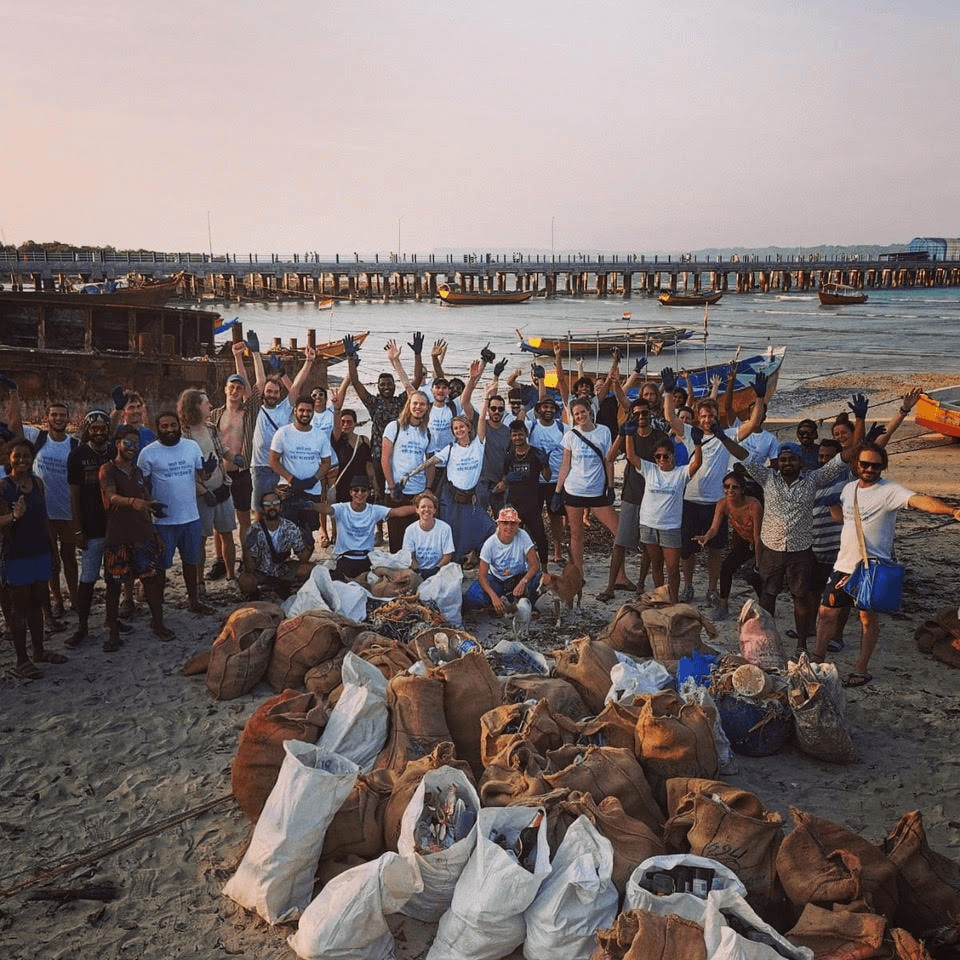
Once a British colony, the Neil Island, renamed to Shaheed Dweep in 2018, is one of the 572 Andaman and Nicobar Islands of India, known for its sprawling beaches, coral reefs and a great variety of tropical fishes and aquatic species. It is a diver's paradise and a favorite holiday destination for Indians and foreigners alike. But this also means that the island is vulnerable to the ill-effects of tourism, especially waste pollution. Since the island has no waste treatment facility, all the waste generated on the island was either being burnt or ended up in the island's already saturated dump-yard. But that was until Garima Poonia, an environmental enthusiast from mainland India, arrived to change things around.
Kachrewaale and Katleen
Garima, who visited the island in 2017, quickly realised the need for waste management on the Andaman Islands. She initiated the Kachrewaale Project, in 2018, was aimed at making the Andaman islands waste free, through effective segregation and management of waste at the source. When Katleen met Garima in 2019, she was eager to volunteer and help out in every way possible. The first pilot project on engaging the hotels on the Neil Island began soon after, which involved identifying the main waste producers, raising awareness and encouraging them to segregate waste into different categories and finally, for the first time, shipping the waste out of the island for recycling and treatment.
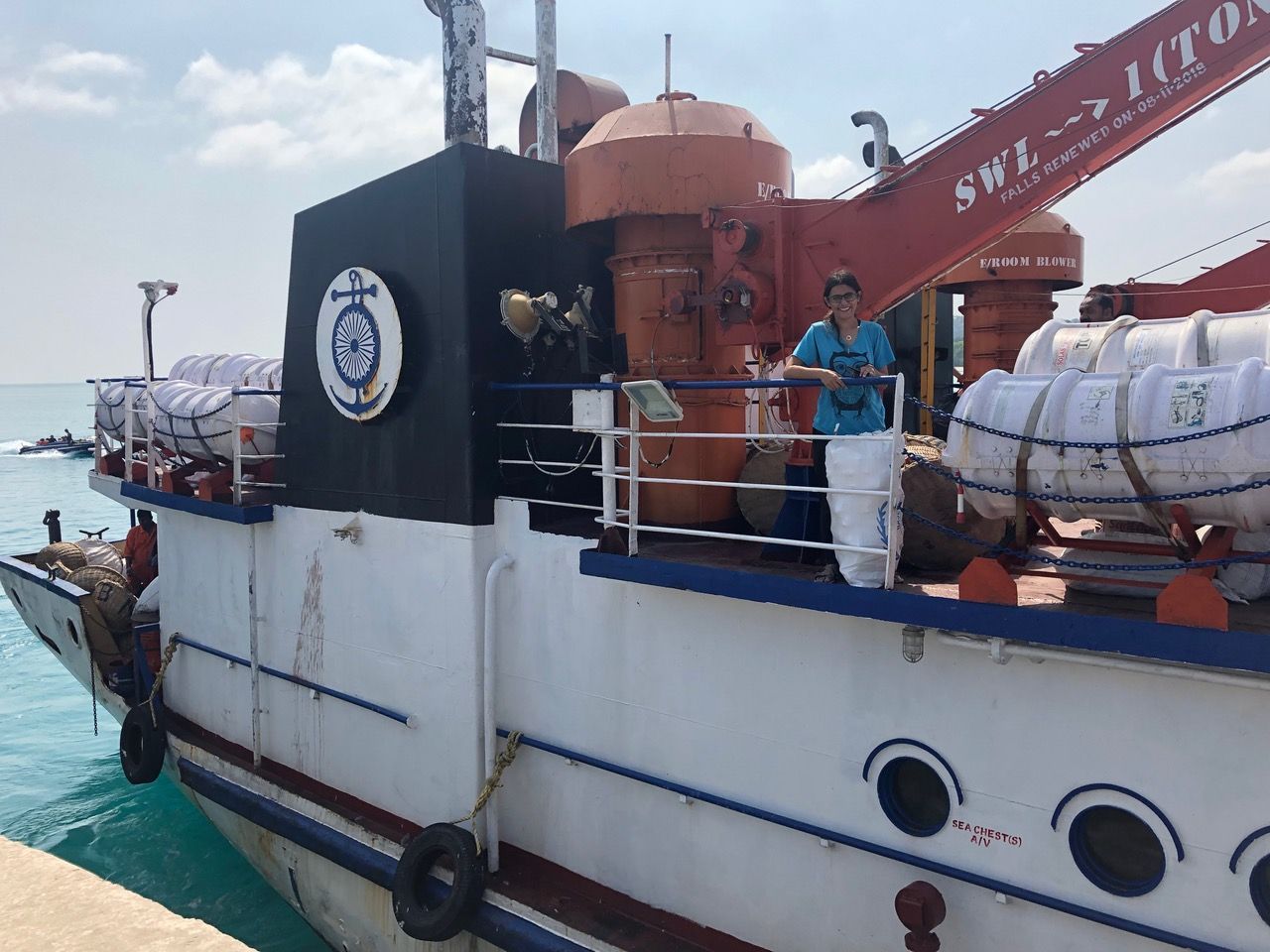
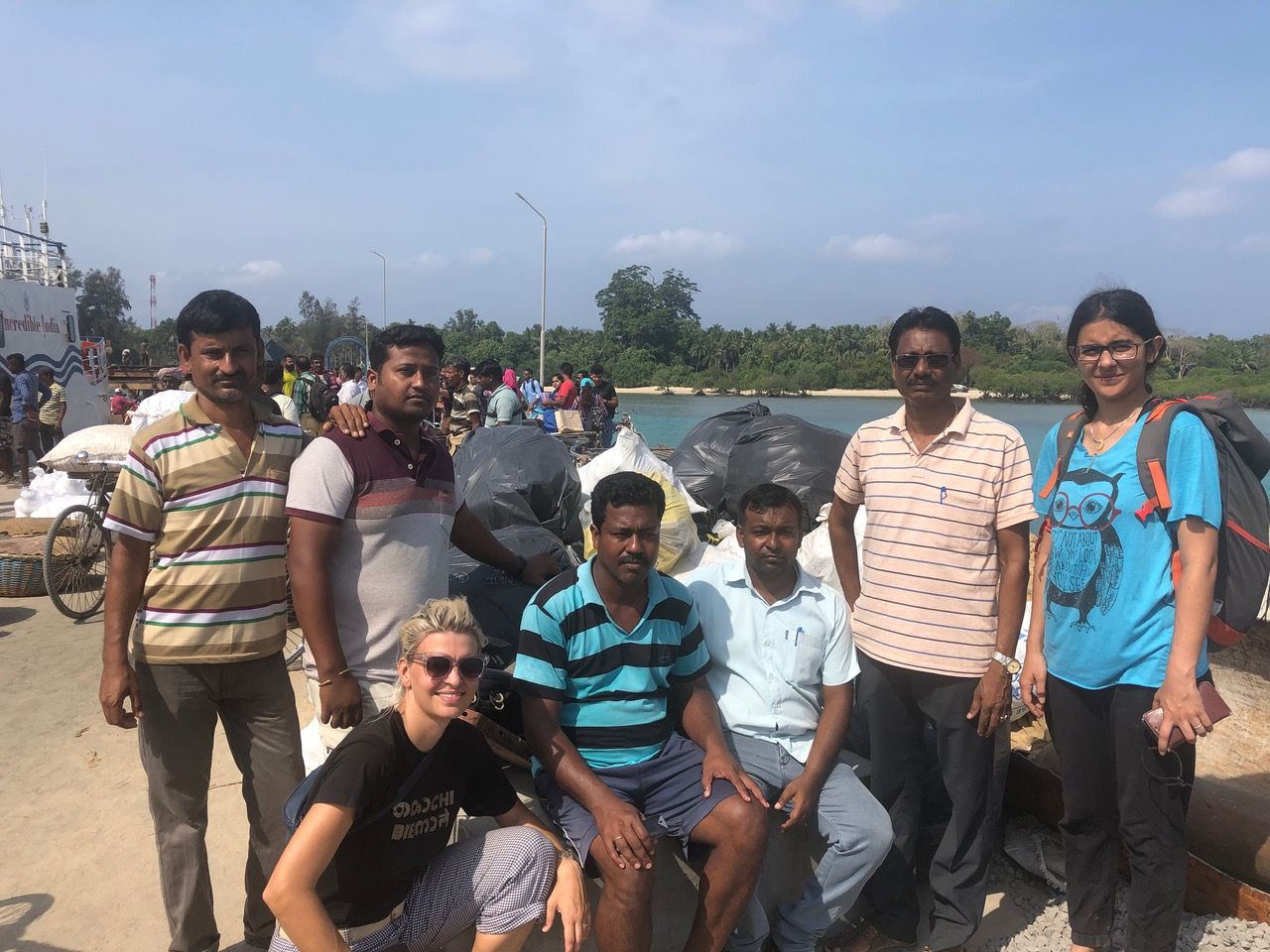
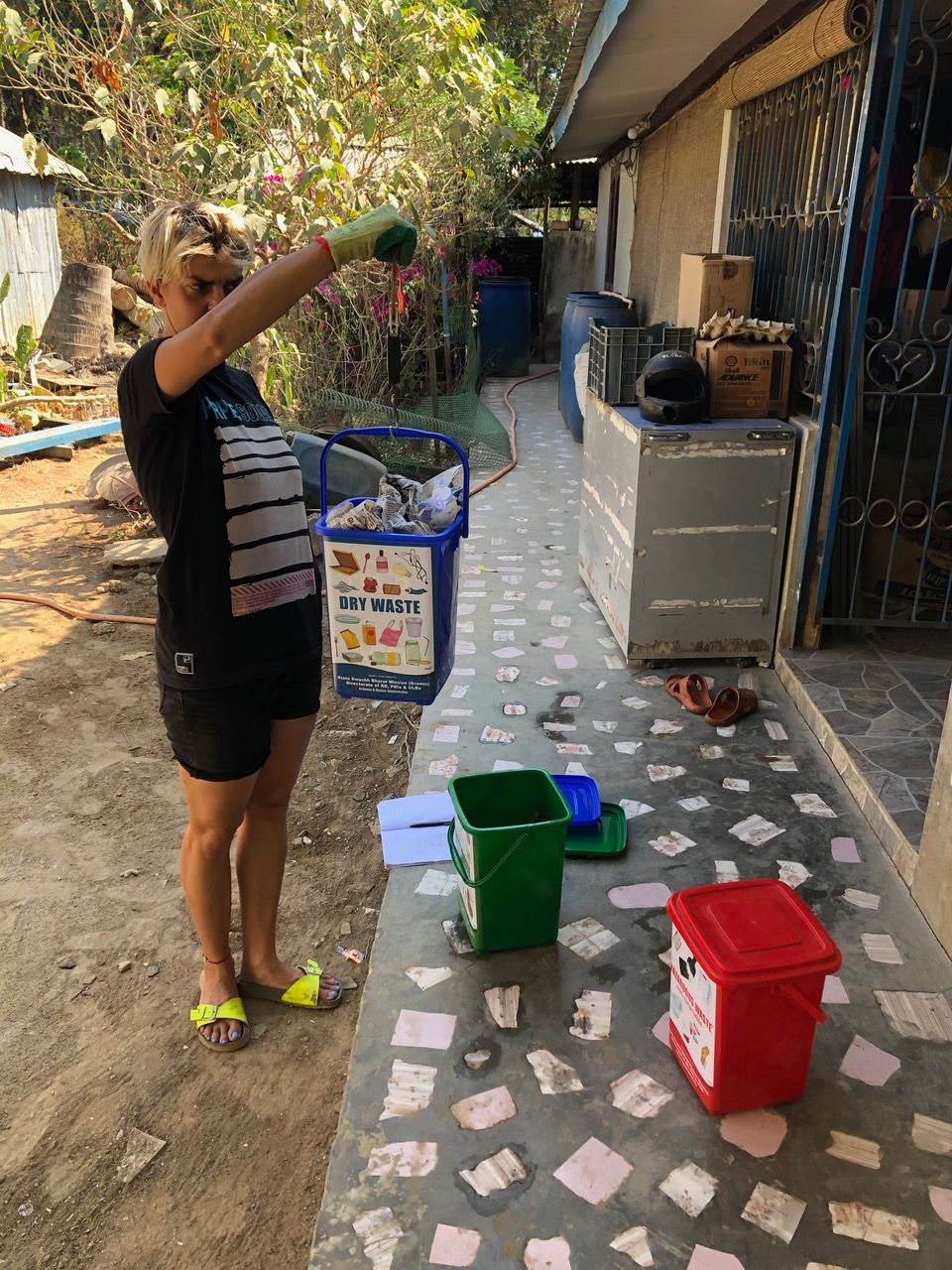
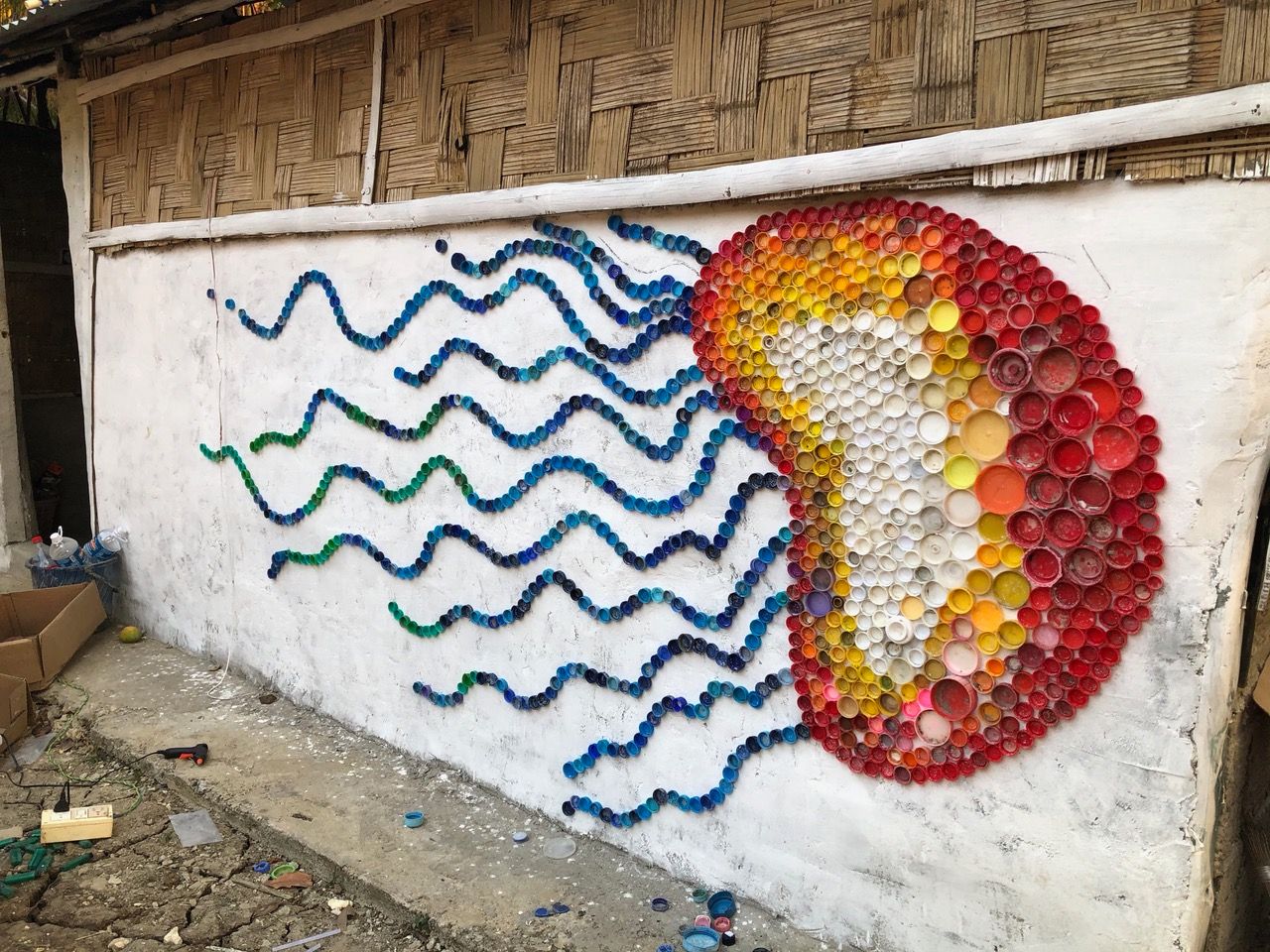
To ensure that waste management could become a reality, Garima, Katleen and many other volunteers like her worked tirelessly in order to establish a supply chain that ships the collected waste from Neil Island to the scrap dealers in Port Blair, (the capital of Andaman and Nicobar islands), who would then ship it to Chennai for the final treatment. From convincing hotel administration and households to segregate waste, to collecting trash from the beaches- Katleen and the Kachrewaale project have done it all, and they have much more to do.
While it hasn't been an easy task, the island administration along with the local inhabitants have recognized the positive impacts of waste segregation and recycling. Instead of being burnt on the island, they could get rid of their waste. The only thing needed now is to sustain this momentum. As Katleen remarks,
"Waste Management isn't only about sophisticated technologies. It is about behavioural change. It is about reducing your consumption!"

Community action and involvement
Tourism is the lifeline of these islands. But finding a balance between tourism and sustainability has been challenging. Through different awareness campaigns, the local shop-keepers and the youth are being encouraged to come and join in the beach clean up operations to get rid of the marine litter washed ashore. Events engaging children, like the one organized by Katleen in schools, was a refreshing change for pupils who segregated waste into different materials and were quick to learn what what item belongs to which category, like paper, metal, plastic, organic or glass. Her research work and collaboration efforts have also reinforced the process of household segregation on the islands, with the households receiving different colored bins for segregated disposal from the government.
While catalysts like Katleen and the Kachrewaale project are essential in initiating such transformation, the real responsibility of carrying it further lies with the people who live there. Many times the islanders tend to forget to appreciate their immediate nature, while tourists from all over the world flock to the islands to enjoy their serenity. The communities on the island and their connection with the sea, corals, palm trees or the pristine sand beaches needs to be re-established and the islanders need to reconnect with nature to be more accountable! This was the major takeaway for Katleen, who still continues to work towards a waste-free Neil island.
Join in
Watch her documentary here on the impressive journey of these young trash pirates who have been working for effective waste management on the Andaman Islands.
Get in touch via Instagram @kachrewaale_thewastepeople to support the kachrewaale initiative through voluntary work.
Pictures: Katleen Schneider and the Kachrewaale intitiaive



















